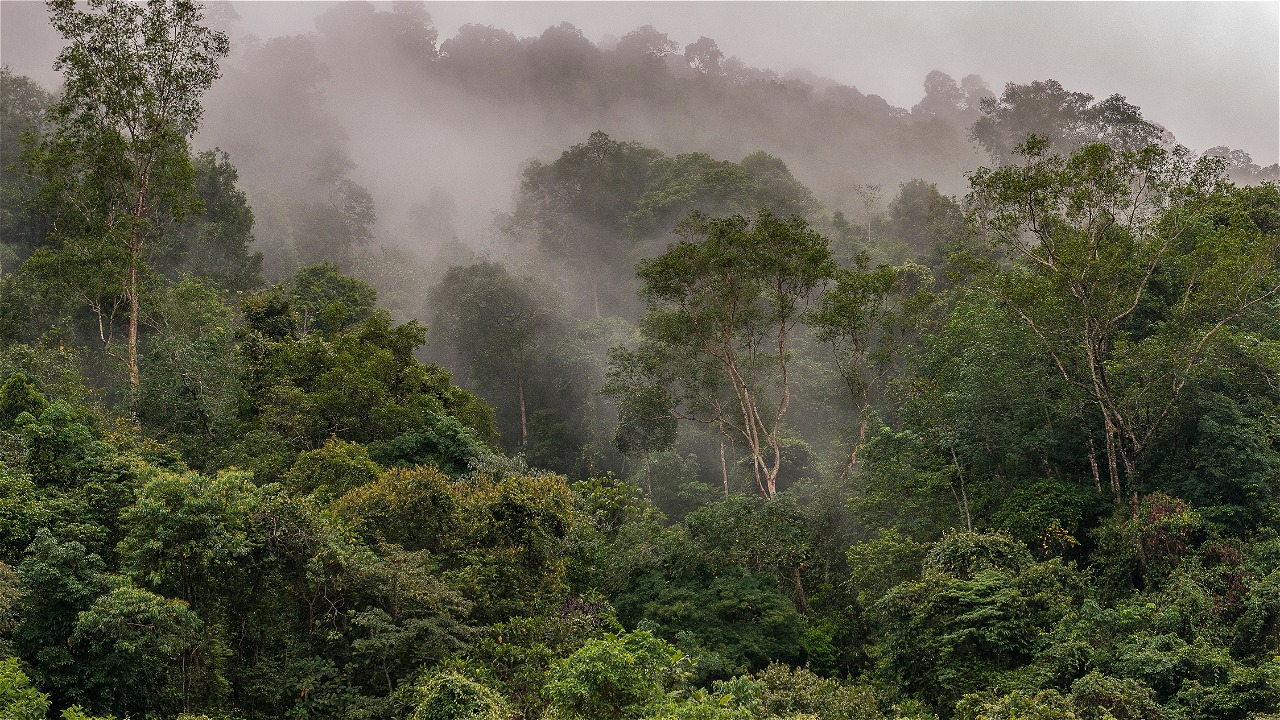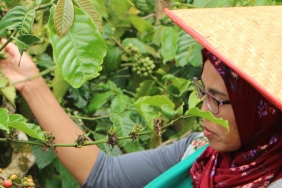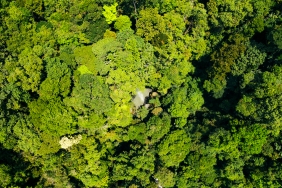PROFIL: ERWIN WIDODO, DEPUTY DIRECTOR FOR FOREST, SPECIES, AND FRESH WATER
By: Jacqui Fetchet
Erwin Widodo is perhaps the hardest man to catch in the WWF-Indonesia National Office Jakarta, but that is what makes him so intriguing. The Deputy Director for Forest, Freshwater and Species can seldom be found in one place as he scurries like an efficient ant between meetings and flights in his role as coordinator, overseer and strategic advisor at the heart of the Save Sumatra project.
Although most of his time is spent travelling in administrative roles, Erwin retains his passion for the environment. He holds a doctorate in Environmental Science and Bio-resource Production from Kobe University and believes wholeheartedly in the importance of biodiversity and natural conservation. This connection developed over ten years of extensive research in tropical ecology and forest management where his time was spent on location throughout Indonesia working with various organisations to develop effective conservation and advocacy strategies. These leading groups include Conservation International, World Wide Fund for Nature, Wildlife Conservation Society, The Nature Conservancy and Yayasan KEHATI Indonesia. He has published several reports focusing on ants in the rainforest and the impacts of logging on their habitat. But the move to WWF has transformed his workplace and his focus.
“We have to look at the flagships, the big species. These include the Sumatran tiger, rhino and elephant, orang-utans and tapir. This is what the people care about and its these species whose numbers are quickly decreasing because of human destruction.”
Taking conservation to the people has broadened Erwin’s working capacity because now he engages with community projects, scientific research, private enterprise and government policy-makers to promote the importance of preserving the scarce forest that remains for the future. His focus is on the lowlands, which are targeted for deforestation due to their ease of access and cheap land conversion. Yet it is this area that holds the most peatland and carbon sinks which are essential to curb the severity of climate change.
Erwin believes, “If we lose the lowlands, we lose the global climate”. His hardest task is to get this message across to the broader community, including government and businesses.
His current work on Sumatra uses a four-pronged approach: spatial planning, conservation management, sector reform and sustainable financing. In order to find answers for the future, Erwin and his team must develop a multi-disciplinary agenda to face the significant challenges these issues present. This is a complex task that involves the coordination of countless projects throughout the country. From encroaching forest plantations and tiger conservation to sustainable palm oil and community development, WWF works on a diverse spectrum in an attempt to spread education about the importance of preserving the environment for the future. From an office in Jakarta, one of the most polluted city in the world, it is difficult to grasp the immediacy of environmental protection and the importance of acting effectively. The ultimate goal of Erwin’s current program is to create strategies to be implemented throughout Sumatra, and later Kalimantan.
“But beyond that,” he says, leaning back in his chair, holding a cup of coffee. “It is about humanity. We must engage with our personal morals and values to understand how to preserve the self. It is only by returning to nature and reality that we are able to preserve the environment for the future.”
Erwin Widodo: ant specialist, nature enthusiast, environmental policy activist, speaker of wisdoms we should all follow. It is inspiring to know a man of such qualities is working for the future of Sumatra and its precious biodiversity.





